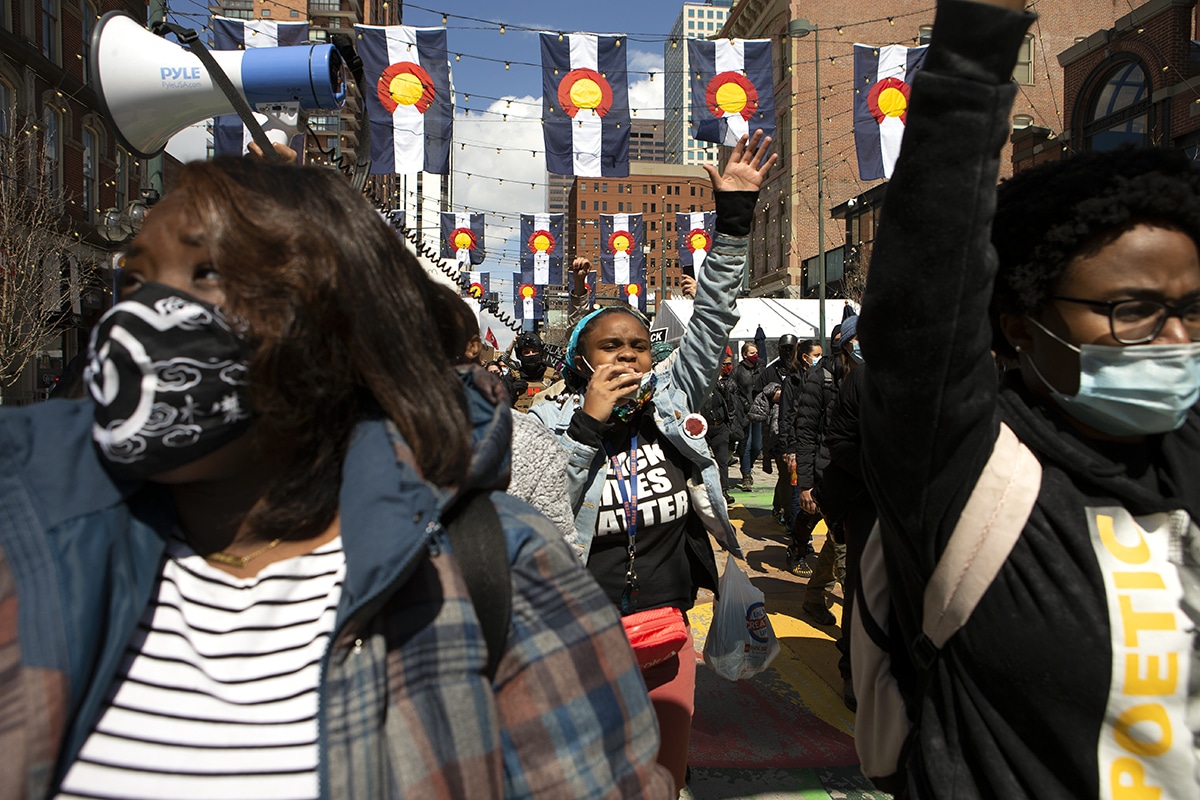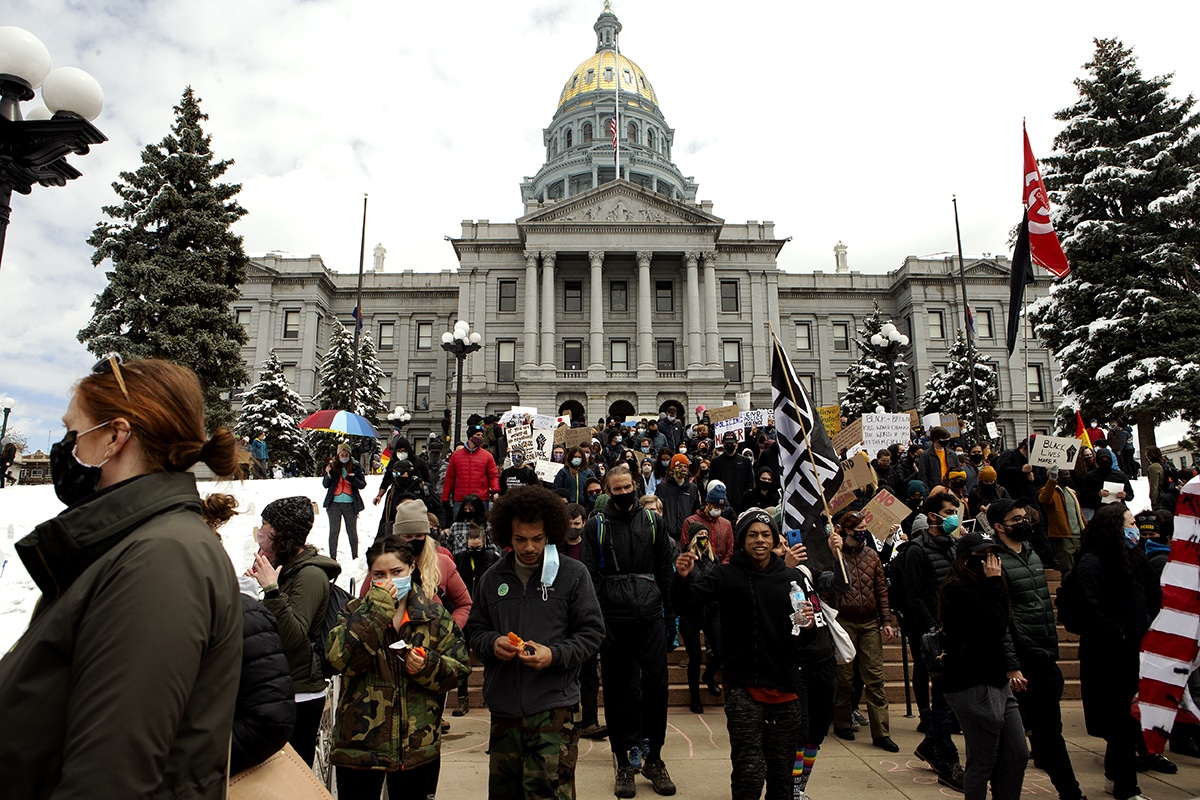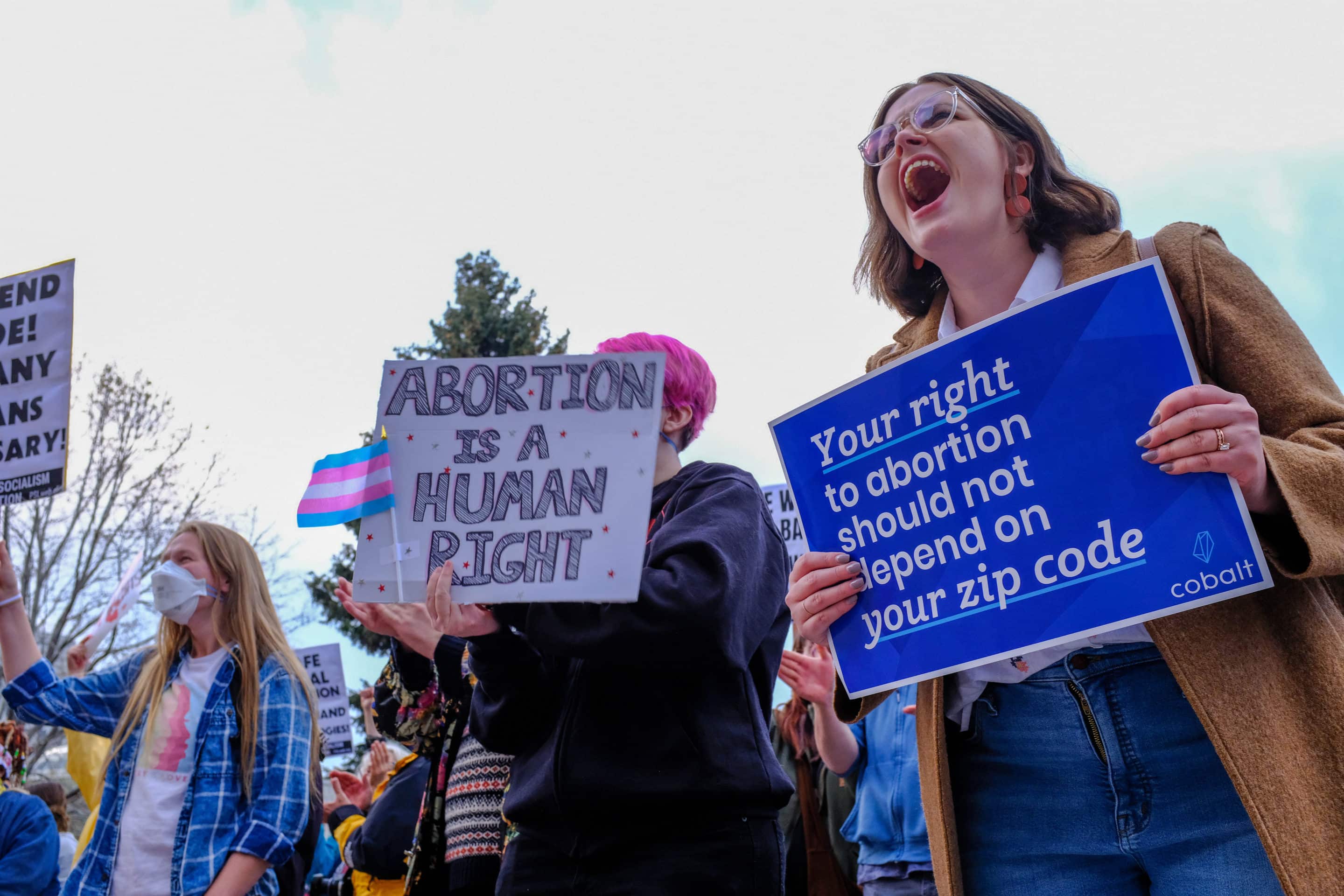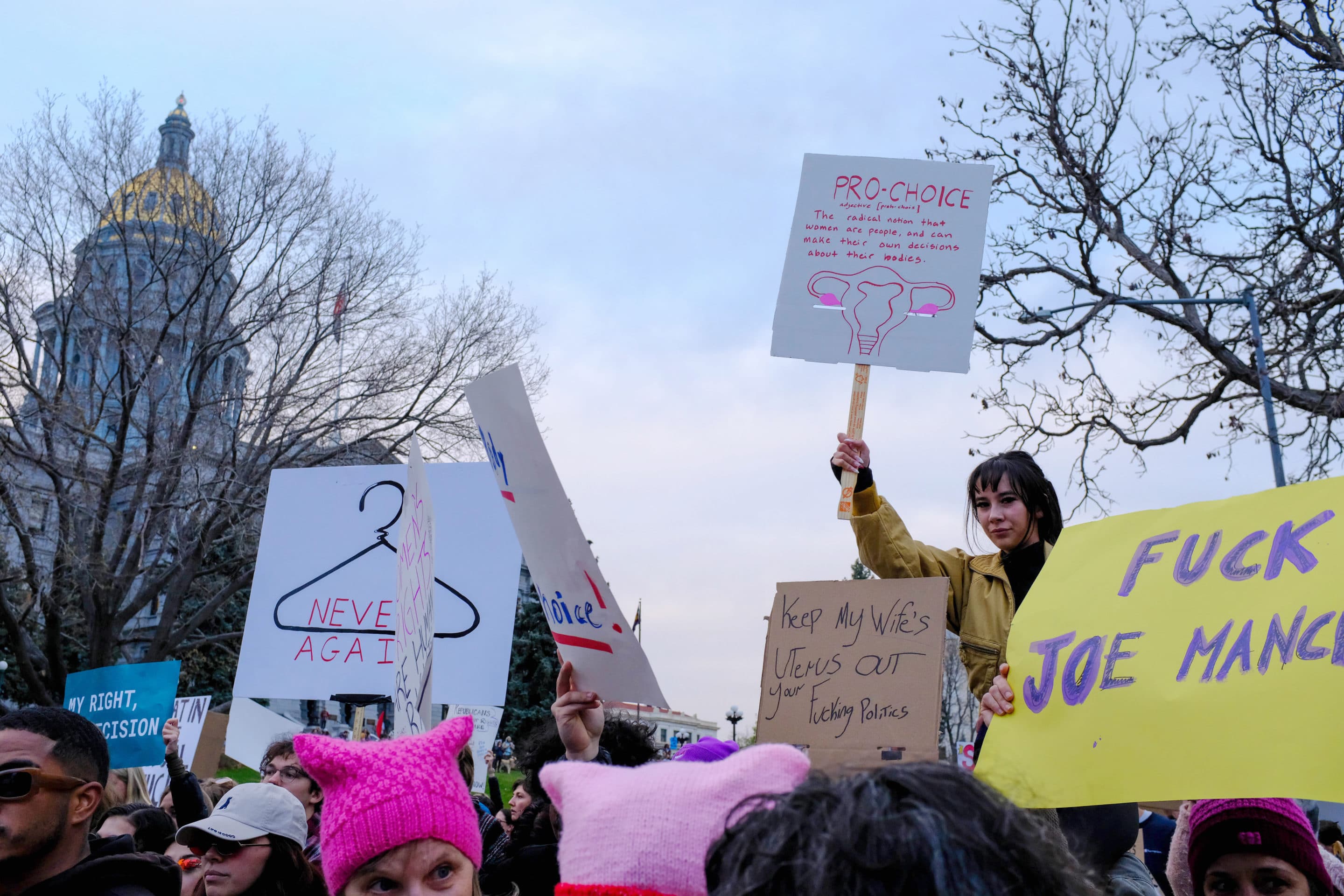//Protesters leave the capitol to march through downtown Denver on Apr. 17, calling for justice for Daunte Wright and other Black and brown victims killed by police. This was the first of two demonstrations yesterday, organized by BIPOC youth and the Parasol Patrol. Photos by Ali Mai | [email protected]
Daunte Wright. Adam Toledo. The grim list of fatalities at the hands of police grows by two additional Black and brown bodies. Young men of color, especially Black men, are acutely vulnerable compared to their peers to police brutality. According to a 2019 study, death at the hands of law enforcement is 2.5 times more likely for Black men compared to whites. Overall, police-related killings are the sixth leading cause of death for young men regardless of skin color.
This statistic was borne out in a simple yet striking way on the lawn of Colorado’s State Capitol. Cardboard headstones sat among the melting ice from one of the last spring snowstorms, adorned with the names and ages of past victims of police brutality or racially motivated violence. The majority of them were under 30.
“With our generation, it’s the generation that’s going to replace the world that we have right now,” said Ashira Campbell, age 17. She led a protest over the police killing of Daunte Wright at the Colorado State Capitol on April 17. “The older generation is tired of seeing the same thing over and over again, so it’s really up to this generation to take action.”
Campbell’s protest coincided with a second one hosted by Party for Socialism and Liberation – Denver that took place two hours after hers. Both protests were peaceful. A third one for Adam Toledo took place later that night around 7:30 p.m. at Cheesman Park. They were the first large-scale protests of 2021 dedicated to the Black Lives Matter movement that was reignited last year.
Despite the legislative wins in Colorado last year such as ending qualified immunity for police officers from civil damages if they knowingly violate the law on the job, the driving forces behind protesters such as Campbell remain the same. They seek more accountability and want to continue pressuring city councils and state legislatures to reform policing. For many of these young activists, justice has not been served. A particular urgency exists since some of them might not live to be 30.
“You can’t call these kids adults when they’re 13 years old, you can’t even call them adults when they’re 20 cause their brains are still growing,” said Lindsay Minter, one of the protesters present. “They’re still finding out who they are and we have to protect them.”
Johnny Redd, a member of We the People 303, defined accountability as more oversight over police and civilian interactions. He said that peace officers needed to be supervised during interactions, as well as having mediators such as mental health services or other social services that can handle difficult situations. Redd emphasized de-escalation as the goal. He is supportive of the city’s Support Team Assisted Response and Denver Alliance for Street Health Response programs, which provide alternatives to police for low-level nonviolent calls.
“You have so many great programs that want to do so much but they don’t get great recognition because funding is going to so many mainstreams,” he said. “You have a lot of people who say, ‘Ok I’m going to donate to Red Cross,’ and of course those are great places to donate, but at the same time, why not donate more local?”
Redd said there were several groups who were engaged in performing mutual aid work in the city to support.
With warmer temperatures, a steady increase in vaccinations and the continual addition of Black and brown victims to the list of police brutality, the phrase “protest season” has begun to ricochet around social media and from some corners of the activist scene. Minter said that to call it protest season was beside the point. It disregarded the people who worked behind the scenes to make positive change year-round. While she wouldn’t tell others how to mourn, she did point out that if someone came out to break glass in the name of social progress they should also take responsibility for it, rather than letting the blame fall on people of color.
“It’s accountability season for everyone,” she said.
Outside the fence surrounding the Denver Police Department’s District Six headquarters, one man was overheard saying to another that it was more fun when the cops were shooting tear gas and pepper balls at protesters. His companion replied with his desire to wield a potato gun. Campbell was unsparing in her sentiments regarding the exchange.

“For people to make comments like that and show up, it’s disgusting and it’s bad,” Campbell said. “But it’s also very clear where their head is at. That they’re not here for Black lives.”
Despite the term “protest season” coming with all sorts of loaded baggage, there nonetheless exists the reality that warmer weather means more people will engage in outdoor activities, protesting among them. Large crowds and civil disobedience can often translate to the political capital needed to push through transformational reform. However, Pasha Eve worries that protesters also draw out groups seeking to push back and overturn the reform that activists like Campbell seek. Her group, Parasol Patrol, formed to shield kids who engage in protest from witnessing or becoming victims of violence. They wield rainbow umbrellas which they use to form a barrier between children and any potential threat.
“After this election, we’re really nervous if it’s going to be worse, or if it’s going to be better,” Eve said. “QAnon’s numbers grew exponentially after this COVID thing, with that in mind are there going to be more or fewer? I think there’s going to be more, and so we’re going to have to work harder.”
She said that one Colorado Proud Boy even tweeted about this weekend’s event, drawing her concern that they may show up. Ultimately, nothing came to pass but she said they did spot a few individuals who were affiliated with the state’s right-wing groups.
Further complicating matters are tensions within Denver’s protest movement itself. Recently, the Party for Socialism and Liberation – Denver found itself at odds with BLM5280, as well as other left-wing groups in the city over accusations that the group was appropriating the movement for Black lives for their own ends. PSL denied the charges, instead pointing out that many of the people who were on the receiving end of the charges were people of color themselves. The tension between all these groups rises from one fact.
“There’s a fundamental difference in how to approach things, either through revolutionary, aggressive tactics or through peaceful protest,” Eve said. She drew an example for comparison. “Historically speaking, there was Martin Luther King Jr. and Malcom X. Hopefully in the future, we’ll look back on this and say it was all good and all for the cause.”
For now though, Eve draws a lot of inspiration from the young people leading Saturday’s protest. Seeing them be so active and come out and push for change fills her with hope for the future.
After all, they’re the ones with the most to lose.





0 Comments